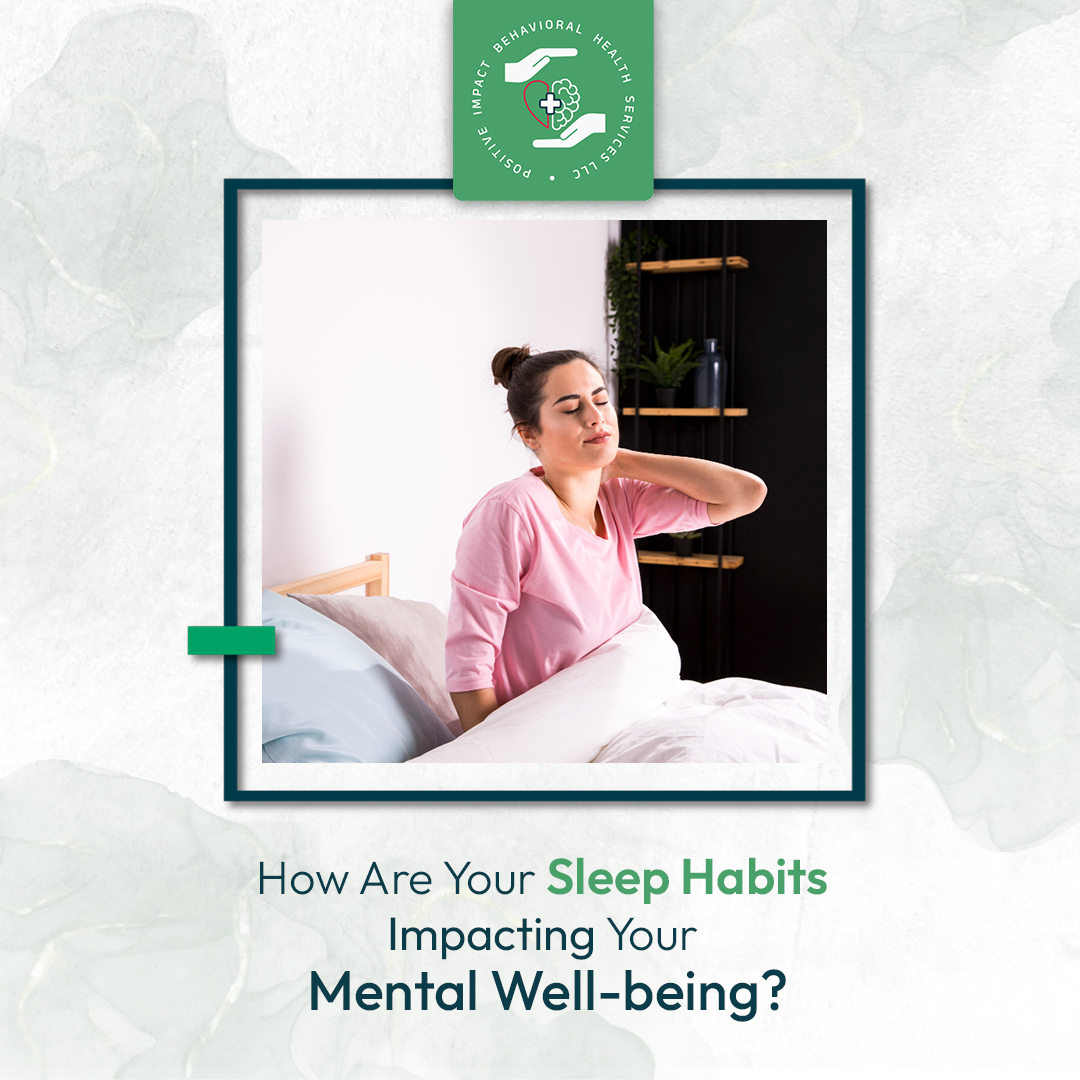How Are Your Sleep Habits Impacting Your Mental Well-Being?
Quality sleep is one of the most important factors for maintaining both physical health and emotional balance. Unfortunately, many people overlook how much their nightly routines influence their mental well-being. At Positive Impact Behavioral Health Services, we often see how disrupted sleep patterns can contribute to or worsen conditions such as depression, ADHD, PTSD, and mood disorders. Understanding the connection between sleep and mental health is the first step toward meaningful change.
The Link Between Sleep and Mental Health
Sleep is not just about rest—it is the body’s time to recharge, regulate hormones, and process emotions. When sleep is disrupted or inconsistent, brain function and emotional regulation are directly affected. This can lead to heightened stress, difficulty concentrating, and increased vulnerability to mental health conditions.
• Depression and Sleep
Insomnia and irregular sleep are strongly associated with depressive symptoms. As part of our Depression Treatment in Metuchen, NJ, we address both emotional health and sleep hygiene to support long-term recovery.
• ADHD and Restlessness
Individuals with ADHD often struggle with hyperactivity and restlessness that interfere with sleep. At Positive Impact Behavioral Health Services, our ADHD Treatment in Metuchen, NJ incorporates behavioral strategies to improve sleep quality, which in turn helps manage focus and attention.
• PTSD and Nighttime Disturbances
Those living with trauma frequently experience nightmares or disrupted sleep cycles. Through specialized PTSD Therapy in Metuchen, NJ, we help patients reduce these disturbances and regain a sense of calm and safety at night.
• Mood Disorders and Circadian Rhythm
Mood disorders are closely tied to circadian rhythm disruptions. Our Mood Disorder Treatment in Metuchen, NJ focuses on stabilizing sleep patterns to reduce mood swings and improve daily functioning.
Steps to Improve Sleep Habits
If you are asking yourself, “Are my sleep habits impacting my mental well-being?” consider starting with small but effective changes:
• Establish a consistent sleep and wake routine.
• Limit caffeine, alcohol, and screen time before bed.
• Create a relaxing, quiet, and comfortable sleep environment.
• Seek professional guidance if sleep problems persist.
Support from Positive Impact Behavioral Health Services
At Positive Impact Behavioral Health Services, we recognize that improving sleep is often a crucial part of improving mental health. Whether you are facing depression, ADHD, PTSD, or a mood disorder, our team provides comprehensive care designed to address both the root causes and the symptoms. By restoring healthy sleep habits, you can take an important step toward better emotional balance and overall well-being.
https://positiveimpactbehavior....alhealth.com/how-are
